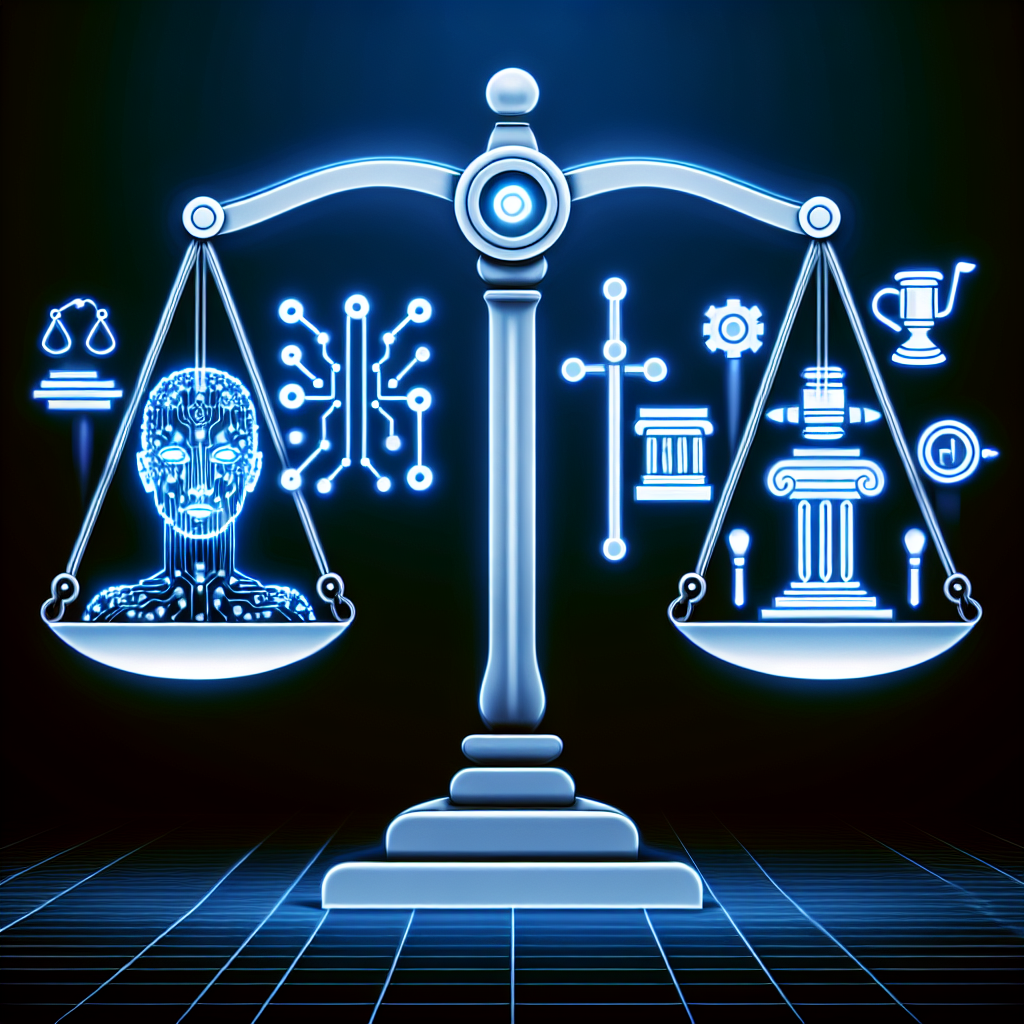In recent years, there has been a significant shift towards using artificial intelligence (AI) in various sectors, including government. AI has the potential to revolutionize the way governments operate and provide services to their citizens. However, with this technological advancement comes the need to ensure accountability and transparency in government decision-making processes. In this article, we will explore the impact of AI on government accountability and the challenges and opportunities it presents.
Impact of AI on Government Accountability
1. Improved Decision-Making: AI has the ability to analyze vast amounts of data quickly and accurately, allowing governments to make more informed decisions. This can lead to better policy-making and more efficient use of resources.
2. Increased Transparency: AI algorithms can be programmed to provide explanations for their decisions, increasing transparency in government processes. This can help build trust with citizens and ensure that decisions are made fairly and without bias.
3. Enhanced Monitoring: AI can be used to monitor government activities and detect potential instances of fraud, corruption, or other unethical behavior. This can help hold government officials accountable for their actions and prevent abuses of power.
4. Streamlined Services: AI can automate routine government tasks, such as processing paperwork or answering citizen inquiries. This can lead to more efficient and effective delivery of services, improving overall accountability and satisfaction.
5. Data Privacy Concerns: The use of AI in government raises concerns about data privacy and security. Governments must ensure that sensitive citizen information is protected and that AI algorithms are not used to infringe on individual rights.
Challenges and Opportunities
1. Bias and Discrimination: One of the main challenges of using AI in government is the potential for bias in decision-making. AI algorithms can reflect the biases of their creators or the data they are trained on, leading to discriminatory outcomes. Governments must be vigilant in ensuring that AI is used ethically and fairly.
2. Lack of Transparency: AI algorithms can be complex and difficult to understand, making it challenging to hold governments accountable for their decisions. Governments must be transparent about how AI is used and ensure that citizens have access to information about the algorithms being used.
3. Accountability for AI Decisions: As AI becomes more integrated into government processes, there is a need to establish clear mechanisms for holding government officials accountable for AI decisions. This may require new legislation or regulatory frameworks to ensure that AI is used responsibly.
4. Need for Ethical Guidelines: Governments must develop ethical guidelines for the use of AI in government to ensure that decisions are made in the best interests of citizens. This may include principles such as fairness, transparency, and accountability.
5. Capacity Building: Governments may need to invest in training and capacity building to ensure that officials have the necessary skills to use AI effectively and ethically. This may require partnerships with academia, industry, and civil society to build expertise in AI governance.
FAQs
Q: How can AI improve government accountability?
A: AI can improve government accountability by providing more transparent decision-making processes, enhancing monitoring of government activities, and increasing efficiency in service delivery.
Q: What are the challenges of using AI in government?
A: Challenges of using AI in government include bias and discrimination in decision-making, lack of transparency in AI algorithms, accountability for AI decisions, and the need for ethical guidelines.
Q: How can governments address data privacy concerns related to AI?
A: Governments can address data privacy concerns related to AI by ensuring that sensitive citizen information is protected, implementing robust security measures, and being transparent about how data is used.
Q: What are the key principles for ethical AI use in government?
A: Key principles for ethical AI use in government include fairness, transparency, accountability, and ensuring that decisions are made in the best interests of citizens.
Q: How can governments build capacity for using AI effectively?
A: Governments can build capacity for using AI effectively by investing in training and partnerships with academia, industry, and civil society to build expertise in AI governance.
In conclusion, the use of AI in government has the potential to improve accountability and transparency in decision-making processes. However, governments must be vigilant in addressing the challenges of bias, lack of transparency, and accountability for AI decisions. By developing ethical guidelines, building capacity, and ensuring data privacy, governments can harness the power of AI to benefit citizens and enhance government accountability.

